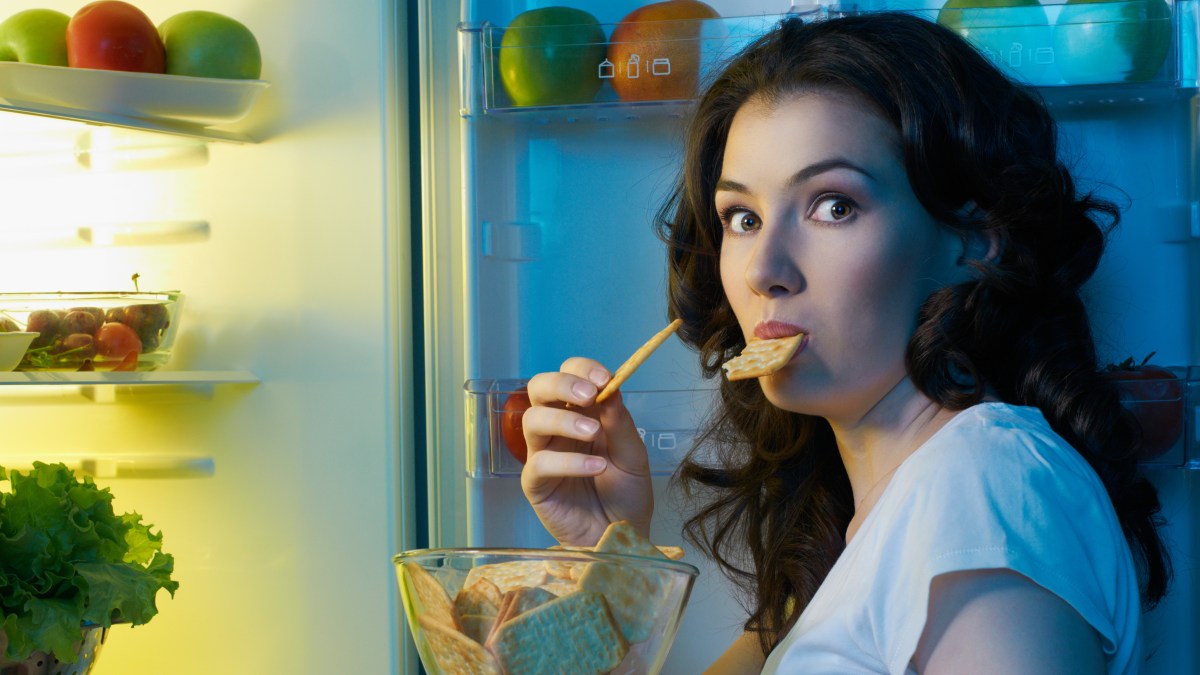Health
Evening Snacking: What Experts Say About Late-Night Nibbles

As evening approaches, many individuals find themselves drawn to the kitchen, contemplating whether to indulge in a late-night snack. This common dilemma raises questions about the impact of eating after a certain hour on overall health. Recent studies highlight potential risks associated with evening snacking, but emerging perspectives from experts suggest that the narrative may be more nuanced than previously believed.
Research from Columbia University, released last year, indicated that consuming food after 7 PM—and even after 5 PM—could contribute to negative metabolic consequences. These consequences include weight gain, disrupted sleep patterns, unstable blood sugar levels, and an increased risk of developing conditions such as type 2 diabetes. Such findings have prompted widespread concern among health professionals and individuals alike.
Despite these warnings, not all experts agree that evening snacking is inherently harmful. A growing body of research suggests that the effects of late-night eating might depend on various factors, including the types of foods consumed and the timing relative to bedtime. According to nutritionists, what one chooses to snack on and how it fits into the overall daily dietary pattern can significantly influence health outcomes.
Rethinking the “No Night Nibbles” Rule
The notion that late-night eating should be strictly avoided is being challenged. Some experts argue that the emphasis on avoiding snacks after a certain hour oversimplifies the issue. For instance, a few squares of dark chocolate at 8 PM may not derail one’s health if it is part of a balanced diet throughout the day. The quality of snacks and their nutritional value play a more critical role in health than the specific timing of consumption.
Research conducted at Kings College London reveals that a staggering 95 percent of adults in the UK have a habitual snacking pattern. This statistic underscores the prevalence of snacking in modern lifestyles and suggests that outright bans on evening snacks may not be practical or realistic. Instead, experts advocate for a more balanced approach to eating that considers individual health needs and preferences.
Practical Advice for Evening Snacking
For those who enjoy snacking in the evening, it is recommended to choose healthier options that are low in sugar and high in nutrients. Foods such as fruits, nuts, and yogurt are often suggested as better choices, providing essential vitamins and minerals without leading to excessive calorie intake.
Additionally, timing can be crucial. Ideally, individuals should aim to finish eating at least a couple of hours before bedtime to allow the body time to digest. This practice can help mitigate potential sleep disturbances and promote better metabolic health.
In conclusion, while concerns regarding evening snacking are backed by research, a more nuanced understanding is necessary. The focus should shift from blanket prohibitions to informed choices that promote overall well-being. As the debate continues, it becomes evident that moderation, quality, and timing are key components in navigating the often temptingly delicious world of late-night snacks.
-

 Health3 months ago
Health3 months agoNeurologist Warns Excessive Use of Supplements Can Harm Brain
-

 Health3 months ago
Health3 months agoFiona Phillips’ Husband Shares Heartfelt Update on Her Alzheimer’s Journey
-

 Science1 month ago
Science1 month agoBrian Cox Addresses Claims of Alien Probe in 3I/ATLAS Discovery
-

 Science1 month ago
Science1 month agoNASA Investigates Unusual Comet 3I/ATLAS; New Findings Emerge
-

 Science4 weeks ago
Science4 weeks agoScientists Examine 3I/ATLAS: Alien Artifact or Cosmic Oddity?
-

 Science4 weeks ago
Science4 weeks agoNASA Investigates Speedy Object 3I/ATLAS, Sparking Speculation
-

 Entertainment4 months ago
Entertainment4 months agoKerry Katona Discusses Future Baby Plans and Brian McFadden’s Wedding
-

 Entertainment4 months ago
Entertainment4 months agoEmmerdale Faces Tension as Dylan and April’s Lives Hang in the Balance
-

 World3 months ago
World3 months agoCole Palmer’s Cryptic Message to Kobbie Mainoo Following Loan Talks
-

 Science4 weeks ago
Science4 weeks agoNASA Scientists Explore Origins of 3I/ATLAS, a Fast-Moving Visitor
-

 Entertainment4 months ago
Entertainment4 months agoLove Island Star Toni Laite’s Mother Expresses Disappointment Over Coupling Decision
-

 Entertainment3 months ago
Entertainment3 months agoMajor Cast Changes at Coronation Street: Exits and Returns in 2025









